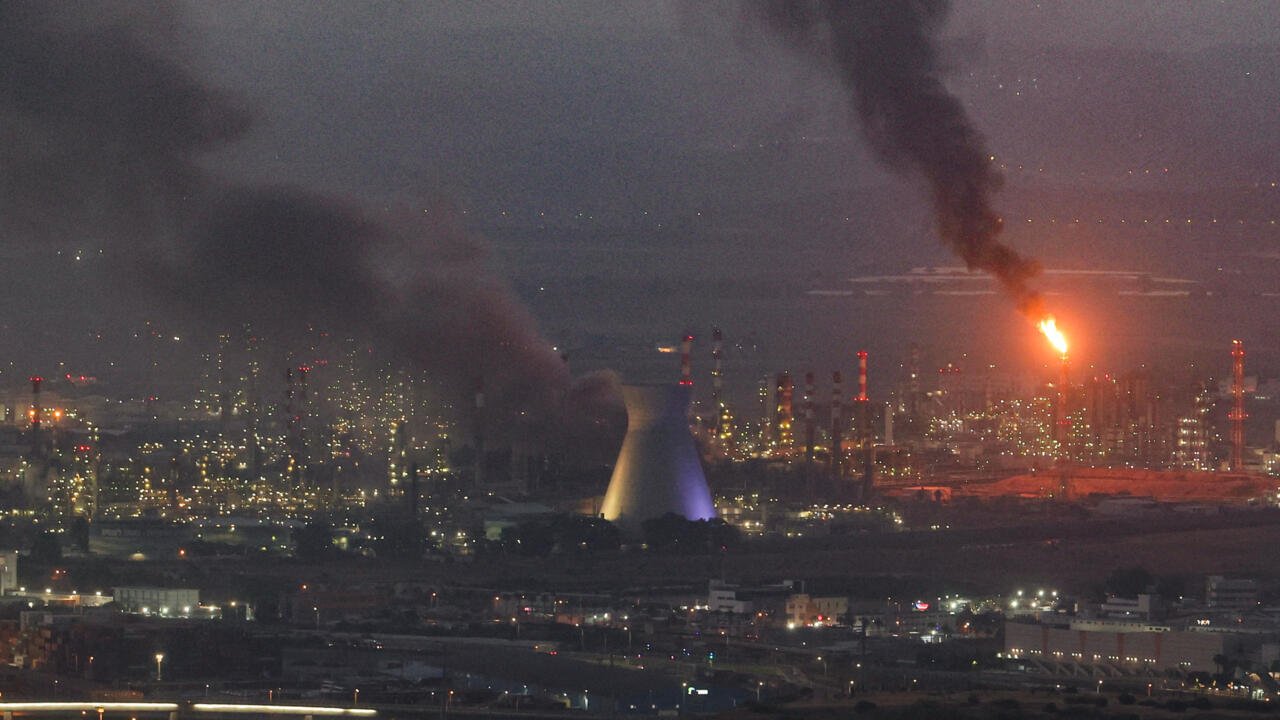General
Israeli-Iran War: Centre Identifies Mixed Economic Implications for Nigeria
Published
8 months agoon

The Centre for the Promotion of Private Enterprise (CPPE) has raised concerns over the economic implications of the ongoing conflict between Israel and Iran, warning that the war could fuel inflation, increase interest rates, and strain business profitability in Nigeria.
However, the think tank also noted potential economic upsides, particularly for foreign exchange earnings and government revenues, should crude oil prices remain elevated.
Read Also:
In a statement issued by Dr Muda Yusuf, Director and Chief Executive Officer of the CPPE, the Centre described the situation as “a troubling dimension to the challenges of an already floundering global economy,” which is still reeling from the effects of the Russia-Ukraine war, the Israel-Hamas conflict, and global trade disruptions.
Crude oil prices surged by 15% to $75 per barrel shortly after the outbreak of hostilities, compared to $65 just a week earlier. Dr Yusuf warned that this would have direct consequences for Nigeria, including rising costs of petrol, diesel, jet fuel, and gas—feeding into an already inflationary environment.
“Energy cost is a major factor in Nigeria’s inflation equation,” the CPPE noted. “It impacts production, logistics, transportation, and power generation, leading to higher consumer prices and potential imported inflation.”
The Centre also warned of tighter monetary policy responses as inflation rises, potentially resulting in higher interest rates that could dampen credit availability and affect foreign investment flows. Businesses, particularly those outside the oil sector or with strong ties to the Middle East, may see their profit margins squeezed under these conditions.
Additionally, the CPPE highlighted risks associated with increased oil revenues, including excessive money supply growth, which could further pressure inflation and the exchange rate. Monetisation of oil receipts, the Centre argued, may necessitate tighter monetary controls, making credit more expensive for businesses.
Despite the risks, the CPPE acknowledged several potential benefits for the Nigerian economy. Chief among these is improved foreign exchange inflow, as higher crude oil prices boost the country’s earnings. This could lead to better foreign reserve levels, enhanced forex liquidity, and a more stable naira.
“Revenue from oil currently accounts for about 50% of government income,” Dr Yusuf said. “An improvement in oil prices would significantly bolster government finances, support fiscal consolidation, and potentially narrow the fiscal deficit.”
He also noted that upstream oil and gas investors stand to gain from higher prices, and that there may be positive spillovers for Nigeria’s stock market, which has historically moved in tandem with crude oil prices and GDP growth.
In conclusion, while the Israeli-Iran war presents a complex mix of economic risks and opportunities, the CPPE urged policymakers to monitor developments closely and adopt responsive measures to protect the Nigerian economy from excessive volatility
Share this:
- Click to share on X (Opens in new window) X
- Click to share on Facebook (Opens in new window) Facebook
- Click to share on WhatsApp (Opens in new window) WhatsApp
- Click to share on Pocket (Opens in new window) Pocket
- Click to share on Telegram (Opens in new window) Telegram
- Click to email a link to a friend (Opens in new window) Email
- Click to share on LinkedIn (Opens in new window) LinkedIn
You may like


CPPE Knocks FG on Policy to Block Raw Material Exports


Nigeria’s Inflation Decline to 15.15% in December 2025 Ignites Questions of Sustainability


Centre Spotlights Catalysts for Nigeria’s Economic Expansion in 2026


Excise Hike on Soft Drinks will Fuel Inflation, Cost Jobs, CPPE Warns


Rising Business Crises: CPPE Demands Urgent Legal Shield for Investors, Employers


CPPE Applauds CBN’s Policy Easing, Raises Fiscal Concerns












